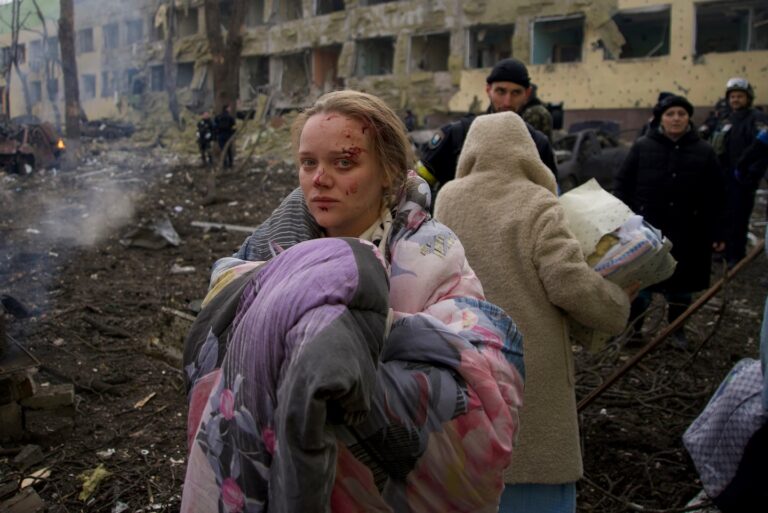What are crimes against humanity?
Crimes against humanity were first prosecuted during the Nuremberg trials of former Nazi officials after World War II.
There is no specific treaty in international law dealing with crimes against humanity, and the concept has evolved over time. But the 1998 Rome Statute, which established the International Criminal Court, defines crimes against humanity as any of a range of acts — including murder, enslavement, deportation, torture and rape — that are “committed as part of a widespread or systematic attack directed against any civilian population, with knowledge of the attack.”
Proving that rights violations are “widespread or systematic” is key, according to David Bosco, a professor of international studies at Indiana University at Bloomington who studies the ICC. And prosecutors have to prove that perpetrators knew that they were attacking civilians as part of a policy or plan.
The United States accused Russian forces of committing war crimes in Ukraine last March, and Ukrainian courts have convicted some two-dozen Russians — mostly low-level soldiers — of war crimes so far.
Unlike war crimes, which are violations of international law committed during combat or occupation, crimes against humanity do not necessarily need to be linked to an armed conflict. And since they deal with patterns of atrocities, the accused are typically commanders or officials, rather than low-level soldiers.
Allegations of crimes against humanity represent “a higher level, because you are talking about something that is a plan or a policy or a systematic campaign,” Bosco said, which “tends to elevate it up the Russian chain of command.”
Their systematic nature makes crimes against humanity harder to prove than war crimes, he added — but easier than genocide, which in this context would require establishing “an intent to destroy the Ukrainian people.”
